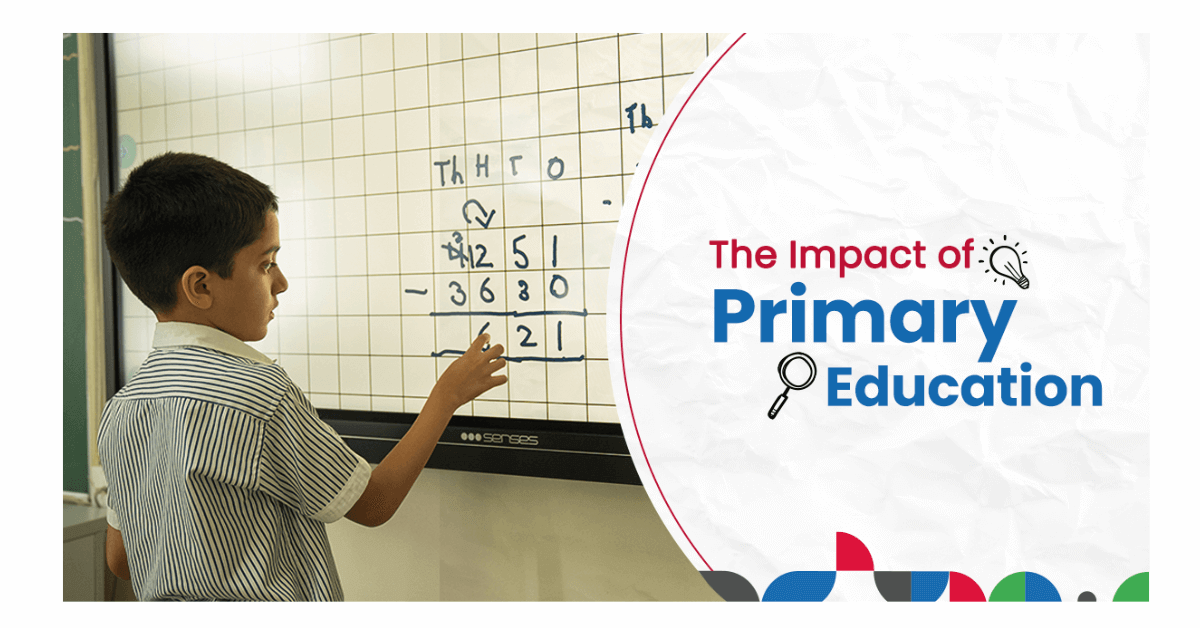The Impact of Primary Education
Primary education lays the foundation upon which a child’s future is built. It isn’t about creating cookie-cutter students. It’s about providing a rich environment where each child’s unique potential can flourish. And CHIREC does exactly that! By creating a safe space, offering diverse learning experiences, and fostering desirable habits, these few years become the incubator that shapes a child’s future. Here’s how:
1. Academic Foundation
Primary education equips children with fundamental skills in reading, writing, and mathematics. These skills are crucial for their future academic success and serve as the building blocks for more advanced learning. It is a challenge for educators and learners to prepare students for future jobs that have not yet been created, such as the use of undiscovered innovations and technologies, solving unknown problems, and adapting to shifts in community beliefs and patterns, among other things. The future of the nation depends on the quality of education provided to children. That’s why at CHIREC, we follow the social-emotional learning approach, which helps students take initiative and set the right goals.
2. Critical Thinking
Through primary teaching, children learn how to think critically, analyse information, and solve problems. These skills are essential for navigating the complexities of the modern world and succeeding in various academic and professional domains. The pressure to perform in the workplace is impacting the mental health of many young professionals. It’s important to emphasise critical thinking skills in children during their childhood development stages so they can cope better as they grow up in a world full of complex challenges. This is where programmes like SEL make a huge difference. They spark curiosity in the minds of children while also training them in conflict resolution. Through SEL, our students learn about emotional intelligence, empathy, and goal-setting abilities, which lead to responsible decision-making.
3. Social Skills
Formative education provides opportunities for children to interact with peers, develop social skills, and learn how to collaborate and communicate effectively. With the social-emotional learning approach that we follow, students are taught about compassion and self-awareness, thereby building a culture of empathy and enhancing their communication abilities. These interpersonal skills are invaluable for fostering relationships, working in teams, and thriving in diverse social settings. Social-emotional learning fosters empathy and ensures holistic development, contributing significantly to an individual’s personality by introducing them to diverse perspectives.
4. Creativity and Innovation
Primary education encourages creativity and innovation by fostering a supportive learning environment where children can come up with new ideas, experiment with different approaches, and express themselves creatively. These qualities are essential for adapting to change and driving progress in a rapidly evolving society and need to be imbibed in students during their childhood development stages. Education is no longer limited to knowing or learning known things; it’s about exploring, creating, testing, and re-learning. Its purpose is to empower individuals to navigate through complex and volatile situations.
5. Self-confidence and Resilience
Through foundational education and social-emotional learning, children learn to overcome challenges, persevere in the face of adversity, and develop confidence in their abilities. These qualities empower them to take on new challenges, pursue their goals, and bounce back from setbacks throughout their lives. This approach helps them develop various skills such as problem-solving, analysis, communication, and interpersonal relations. Furthermore, it makes children more aware of themselves and their surroundings, thus improving their relationships and self-confidence. Quality primary education shapes a person’s attitude, behaviour, and approach towards life, leading to increased confidence and success.
6. Cultural Awareness and Diversity
Inclusive education exposes children to diverse cultures, perspectives, and experiences, fostering empathy, tolerance, and a sense of global citizenship. Quality primary teaching fosters cultural awareness by integrating diverse perspectives into the curriculum, celebrating multicultural festivals, and promoting empathy. Comprehensive classroom environments encourage dialogue and respect, while language learning enhances understanding of cultural nuances. This cultural awareness is essential for navigating an interconnected world and contributing positively to society.
7. Health and Well-being
By instilling healthy habits including physical activity, proper nutrition, and emotional well-being during their childhood development stages, children are better equipped to lead fulfilling lives as they grow older. Additionally, inclusive primary teaching provides emotional support through counselling services and fosters social connections, reducing feelings of isolation. By emphasising the importance of mental health and self-care, early education equips students with the tools to lead balanced and fulfilling lives.
8. Future Opportunities
Ultimately, a good education in a student’s childhood development stages opens doors to future opportunities. It equips children with the knowledge, skills, and attitudes they need to pursue further education, enter the workforce, and contribute meaningfully to society. Higher levels of education, such as high school, college, or vocational training, offer specialised knowledge and skills that can lead to more advanced career paths. It also provides the basic skills and knowledge needed for entry into the workforce whether pursuing a traditional career path or exploring entrepreneurial ventures. Without a solid foundation in primary education, children may face barriers to success later in life.
9. Lifelong Learning
Perhaps most importantly, primary education instils a love of learning and a growth mindset that encourages children to continue learning throughout their lives. A positive primary school experience can ignite a child’s curiosity while engaging teachers and stimulating activities can make them enthusiastic about acquiring knowledge. This lifelong learning mindset enables them to adapt to new challenges, pursue personal and professional growth, and thrive in an ever-changing world.
In summary, primary education plays a crucial role in shaping a child’s future by providing them with the knowledge, skills, and attitudes they need to succeed academically, socially, and personally. By investing in quality primary education, we not only set children on the path to success but also empower them to become engaged, informed, and responsible members of society.





